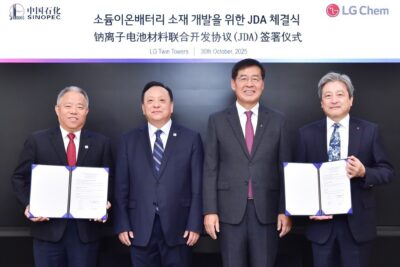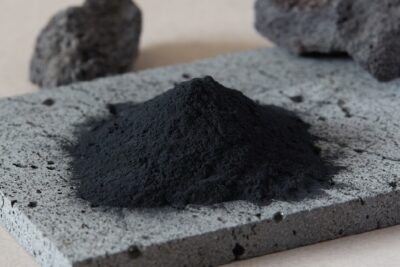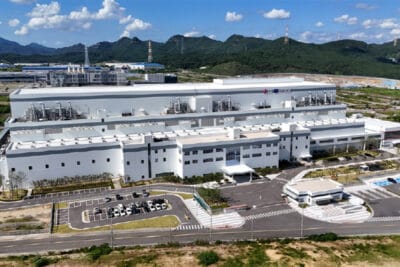Lithium-air, Lithium-sulfur, Supercapacitors, LG Chem, Sakti3.
Lithium-air research: Scientists at the universities Graz, St. Andrews, Oxford and Amiens, as well as Collège de France have been able to better clarify the discharge process of lithium-air batteries. They say the key to increase capacity is an electrolyte with high donor number like i.e. sulfoxides or imidazole.
idw-online.de, science.apa.at (all articles in German)
Next-gen lithium-sulfur cells: Battery specialist Oxis Energy says it developed such a cell with an energy density of 300 Wh/kg, increasing its capacity twelve fold to 25 Ah within 18 months. The company believes it can develop cells with an energy density of 500 Wh/kg by 2018. According to Oxis, vehicle manufacturers are already reviewing and evaluating the cell technology.
chargedevs.com, oxisenergy.com
Supercapacitors for EVs: Researchers at the Queensland University of Technology have developed a lightweight supercapacitor, that was made into a thin film with a high power density. The supercaps could be embedded in a car’s body panels, roof, doors, bonnet and floor. The scientists say that once they increase energy density, the supercapacitors could allow for a range of around 500 kilometres.
qut.edu.au
Battery talks: Autoline Network airs a discussion between (among others) the CEO of LG Chem’s North American unit and the founder of Sakti3 about the future of batteries. The experts agree that for at least the next 10 to 15 years, nothing will be able to replace lithium cells.
youtube.com (Video) via greencarreports.com
– Feedback –
Most clicked link on Tuesday was Italian e-bike manufacturer Velorapida that has adopted the ZeHus Bike+ kit for an unlimited range.
technologicvehicles.com




0 Comments